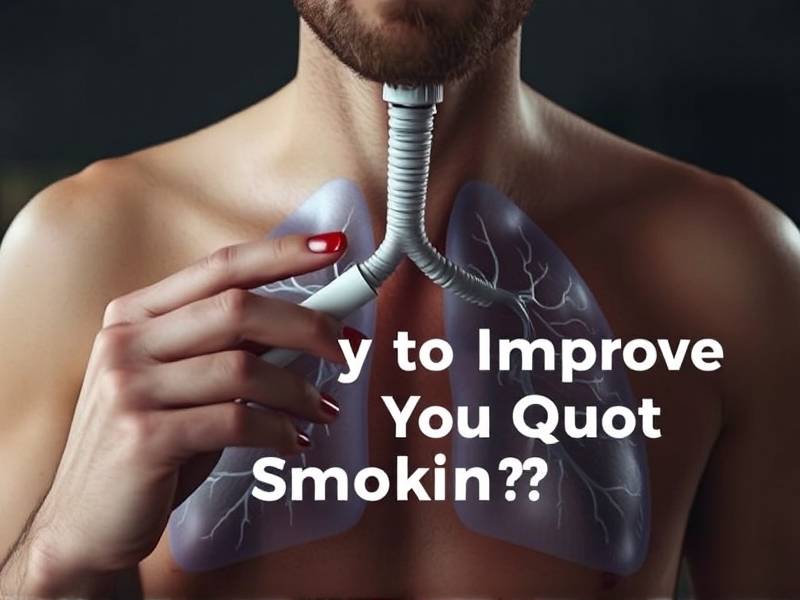How Long Does It Take for Breathing to Improve After You Quit Smoking?
The Journey to Better Breathing
Quitting smoking is a significant step towards a healthier life, and one of the most noticeable improvements smokers often report is an enhanced sense of breath. But just how long does it take for breathing to truly improve after you quit? Let's delve into the timeline and factors that influence this transformation.

Immediate Improvements
1. First 24 Hours: The moment you quit smoking, your body begins to undergo changes. Carbon monoxide levels start to drop, allowing your blood to carry more oxygen. This can lead to an immediate feeling of increased energy and clearer thinking.
2. First Week: Within the first week, you may notice a decrease in shortness of breath and an improvement in lung function. Your sense of taste and smell may also start to return, making food and drinks more enjoyable.
Early Months: A Steady Improvement
3. First Month: After about a month, your lungs will have begun to clean out tar and other toxins accumulated from smoking. You'll likely experience fewer respiratory infections, such as colds or bronchitis.
4. Three Months: At this point, your lung capacity should have improved by about 10-15%. You'll find it easier to breathe during physical activity, and your overall stamina will increase.
Long-Term Benefits
5. One Year: After one year of quitting, the risk of heart disease is reduced by half compared to continuing smokers. Your lungs continue to clear out debris, leading to further improvements in breathing.
6. Five Years: The risk of stroke is similar to that of non-smokers at this stage. Your lungs' function continues to improve as they repair damage from smoking.

7. Ten Years: The risk of lung cancer decreases significantly over ten years after quitting. Your lungs are on their way back to full health, which means better breathing for years to come.
Factors Influencing Recovery
It's important to note that the timeline for breathing improvement can vary from person to person based on several factors:
- Duration and Amount Smoked: The longer you smoked and the more cigarettes you smoked per day, the longer it may take for your lungs to recover.
- Age: Younger individuals tend to recover faster than older ones.
- Overall Health: Smokers with existing respiratory conditions may experience slower improvements.
- Environmental Factors: Exposure to pollutants or allergens can also impact recovery rates.
The Importance of Support
Quitting smoking is challenging, but having support can make a significant difference in your journey towards better health. Consider joining support groups, seeking professional help, or using nicotine replacement therapies (NRTs) or prescription medications if needed.
In conclusion, while the exact timeline for breathing improvement after quitting smoking can vary, it's clear that the benefits are substantial and well worth the effort. By staying committed and supportive of each other's journeys, we can all breathe easier in the long run.
